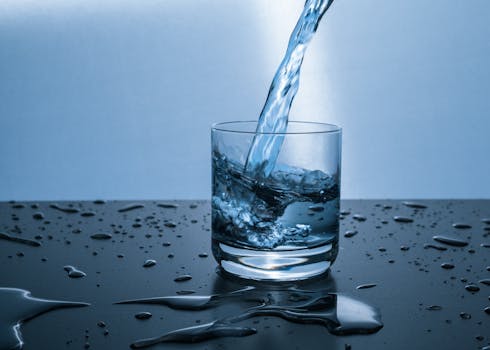The Importance of Proper Hydration During and After Intense Physical Training
Hydration is a critical component of athletic performance and overall health, especially during and after intense physical training. The human body is composed of approximately 60% water, and maintaining this balance is essential for optimal functioning. In this article, we will explore the significance of proper hydration, the consequences of dehydration, and practical strategies for ensuring adequate fluid intake.
Understanding Hydration and Its Role in Physical Performance
Hydration refers to the process of providing the body with sufficient fluids to maintain its physiological functions. During intense physical training, the body loses water through sweat and respiration, which can lead to dehydration if not adequately replenished. Proper hydration plays several vital roles in athletic performance:
- Regulating Body Temperature: Water helps dissipate heat generated during exercise, preventing overheating.
- Maintaining Blood Volume: Adequate hydration ensures optimal blood circulation, delivering oxygen and nutrients to muscles.
- Enhancing Muscle Function: Proper fluid balance is crucial for muscle contractions and overall performance.
- Preventing Fatigue: Dehydration can lead to early onset of fatigue, reducing endurance and performance levels.
The Consequences of Dehydration
Dehydration occurs when the body loses more fluids than it takes in, leading to a range of negative effects on physical performance and health. Some of the consequences include:
- Decreased Performance: Studies have shown that even a 2% loss in body weight due to dehydration can impair performance significantly.
- Increased Risk of Injury: Dehydration can lead to muscle cramps, strains, and other injuries.
- Impaired Cognitive Function: Dehydration can affect concentration, decision-making, and reaction times, which are crucial during intense training.
- Long-term Health Issues: Chronic dehydration can lead to kidney stones, urinary tract infections, and other health complications.
Statistics Highlighting the Need for Hydration
Research underscores the importance of hydration in sports and exercise. According to a study published in the Journal of Athletic Training, athletes can lose between 6-10% of their body weight through sweat during prolonged exercise. Furthermore, the American College of Sports Medicine recommends that athletes drink:
- 17-20 ounces of water 2-3 hours before exercising.
- 8 ounces of water 20-30 minutes before exercising.
- 7-10 ounces of water every 10-20 minutes during exercise.
- 16-24 ounces of water for every pound lost after exercise.
Strategies for Staying Hydrated
To ensure proper hydration during and after intense physical training, consider the following strategies:
- Pre-Hydration: Begin your training well-hydrated by drinking fluids throughout the day.
- Monitor Fluid Loss: Weigh yourself before and after workouts to assess fluid loss and adjust your intake accordingly.
- Use Electrolyte Drinks: For prolonged or intense workouts, consider sports drinks that contain electrolytes to replenish lost minerals.
- Set Reminders: Use apps or alarms to remind you to drink water regularly during training sessions.
Case Studies: Real-World Examples
Several athletes have experienced the consequences of inadequate hydration. For instance, during the 2016 Summer Olympics, a well-known marathon runner collapsed due to severe dehydration, highlighting the critical need for proper fluid intake. Conversely, a study involving collegiate football players showed that those who adhered to a structured hydration plan performed better and reported fewer instances of cramping and fatigue.
Conclusion
Proper hydration is essential for anyone engaging in intense physical training. The benefits of staying hydrated extend beyond improved performance; they also encompass overall health and well-being. By understanding the importance of hydration, recognizing the signs of dehydration, and implementing effective strategies, athletes can enhance their training outcomes and reduce the risk of injury. Remember, hydration is not just about drinking water; it’s about maintaining a balance that supports your body’s needs during and after exercise. Prioritize your hydration, and you will reap the rewards in your athletic performance and health.
